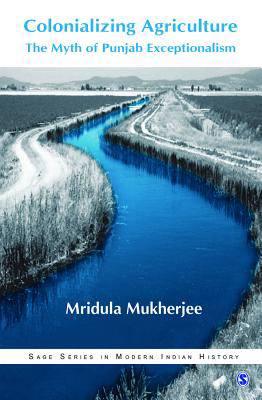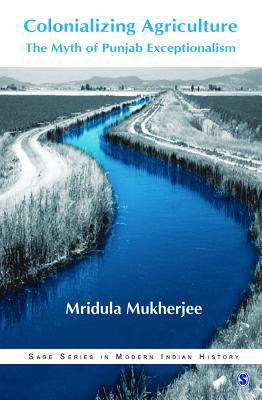
En raison d'une grêve chez bpost, votre commande pourrait être retardée. Vous avez besoin d’un livre rapidement ? Nos magasins vous accueillent à bras ouverts !
- Retrait gratuit dans votre magasin Club
- 7.000.000 titres dans notre catalogue
- Payer en toute sécurité
- Toujours un magasin près de chez vous
En raison de la grêve chez bpost, votre commande pourrait être retardée. Vous avez besoin d’un livre rapidement ? Nos magasins vous accueillent à bras ouverts !
- Retrait gratuit dans votre magasin Club
- 7.000.0000 titres dans notre catalogue
- Payer en toute sécurité
- Toujours un magasin près de chez vous
27,95 €
+ 55 points
Format
Description
This book is the first comprehensive study of the impact of colonialism on the agriculture of this very important region which, apart from the Pakistani and Indian provinces of Punjab, included the present day Indian provinces of Haryana and Himachal Pradesh.
Making extensive use of data culled from government archives and private papers in India and Britain, as well as from village surveys, farm accounts and family budgets, the author argues that Punjab was by no means an idyllic land of prosperous peasant proprietors. She maintains that it was also the land of big feudal landlords, rack-rented tenants, and struggling small-holders, who were forced to enlist in the army or migrate to enable their families to pay government taxes and to repay debts. Comparing Punjab with its supposed polar-opposite, the eastern region of Bengal and Bihar, Mridula Mukherjee demonstrates that Punjab too had begun to exhibit features typical of colonial under-development, such as stagnation of productive forces, intensification of semi-feudal relations, forced commercialisation and lack of capital investment in agriculture. The green revolution therefore was not the result of a continuity but actually because of a break with the colonial past.
Making extensive use of data culled from government archives and private papers in India and Britain, as well as from village surveys, farm accounts and family budgets, the author argues that Punjab was by no means an idyllic land of prosperous peasant proprietors. She maintains that it was also the land of big feudal landlords, rack-rented tenants, and struggling small-holders, who were forced to enlist in the army or migrate to enable their families to pay government taxes and to repay debts. Comparing Punjab with its supposed polar-opposite, the eastern region of Bengal and Bihar, Mridula Mukherjee demonstrates that Punjab too had begun to exhibit features typical of colonial under-development, such as stagnation of productive forces, intensification of semi-feudal relations, forced commercialisation and lack of capital investment in agriculture. The green revolution therefore was not the result of a continuity but actually because of a break with the colonial past.
Spécifications
Parties prenantes
- Auteur(s) :
- Editeur:
Contenu
- Nombre de pages :
- 240
- Langue:
- Anglais
- Collection :
- Tome:
- n° 9
Caractéristiques
- EAN:
- 9780761934059
- Date de parution :
- 14-08-18
- Format:
- Livre broché
- Format numérique:
- Trade paperback (VS)
- Dimensions :
- 162 mm x 243 mm
- Poids :
- 290 g

Les avis
Nous publions uniquement les avis qui respectent les conditions requises. Consultez nos conditions pour les avis.






